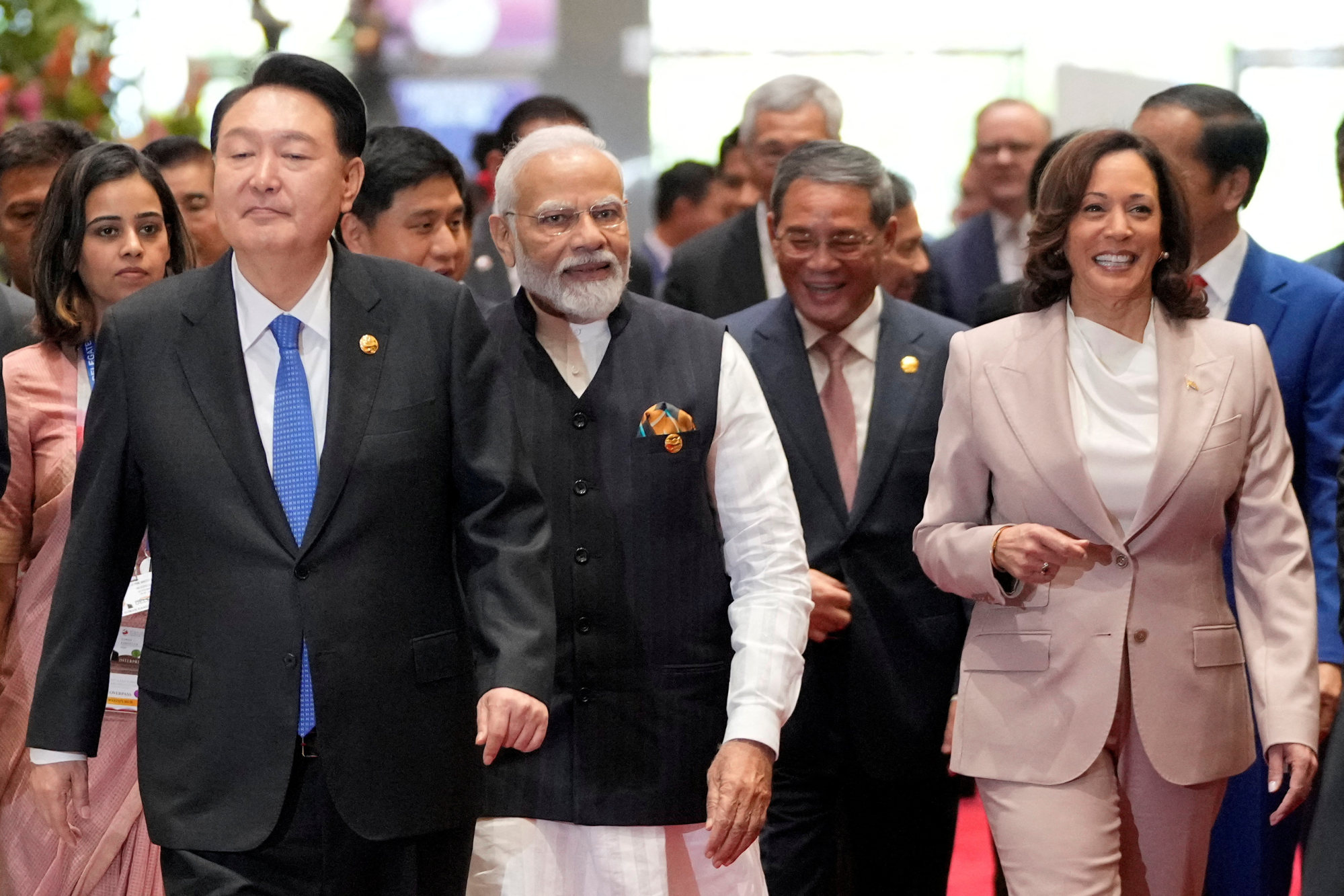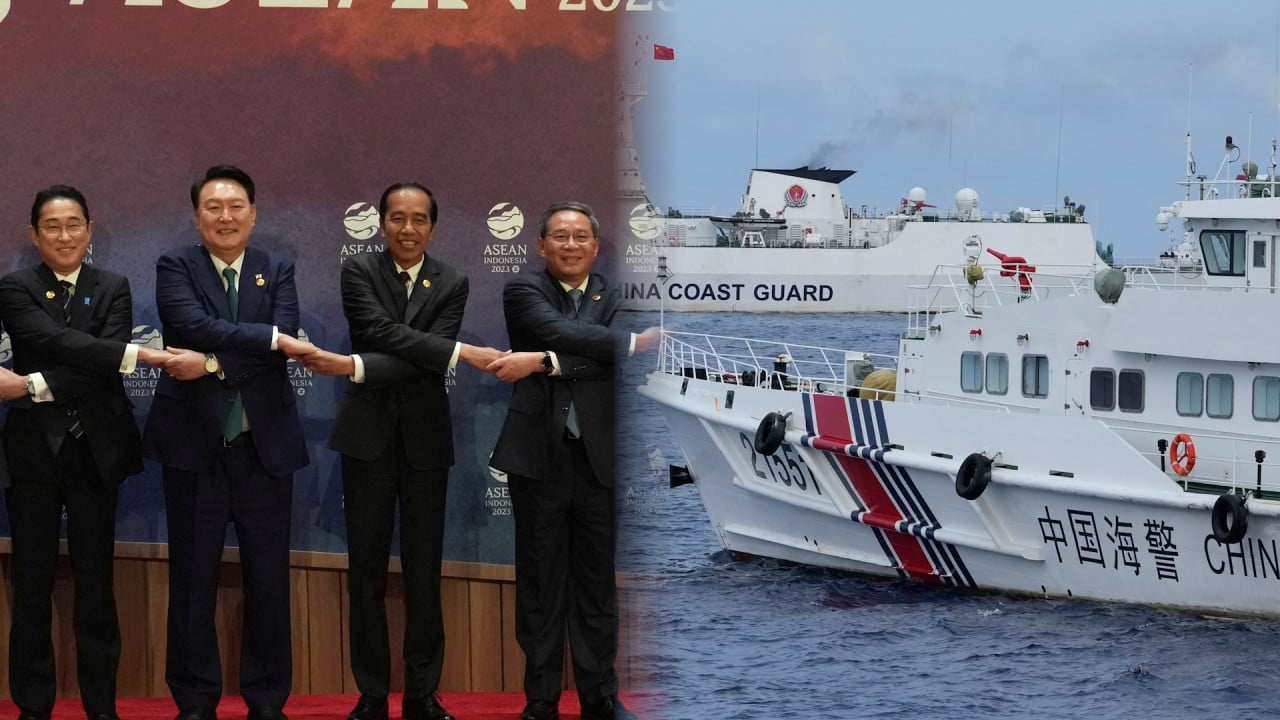
Chinese Premier Li Qiang calls for regional unity at East Asia Summit
- ‘We all have had the immediate experience of how unity leads to prosperity while division brings decline,’ he tells summit attendees
- Remarks contrast with Li’s warning against “a new cold war” during a meeting a day earlier with officials from Asean members, Japan and South Korea
Chinese Premier Li Qiang stressed the importance of unity as he wrapped up a series of meetings with East Asian leaders in Jakarta on Thursday.
“[The region] has learned the challenges of development, the importance of opening up, and the preciousness of peace. We all have had the immediate experience of how unity leads to prosperity while division brings decline,” Li said at the East Asia Summit.

In the face of “new development and challenges”, the region should “make good use of strategic dialogue and increase mutual trust with each other”, he was quoted by the official Xinhua news agency as saying.
Without naming them, Li also called on countries outside the region to “fully respect” the negotiation of the South China Sea code of conduct between China and the Association of Southeast Asian Nations (Asean).
The summit gathered leaders of important players in the Indo-Pacific, including Asean member states, Australia, India, Japan, South Korea, New Zealand, the United States and Russia.
Calling for closer regional cooperation, Li urged the Southeast Asian grouping’s leadership to “take care of all parties’ demands and respect each other’s interest”.
Li, who became premier in March, arrived in Indonesia on Tuesday for the Asean summits and meetings with regional leaders. Indonesia was the first Asian country Li has visited since taking office.
He also met South Korean President Yoon Suk-yeol, who has built increasingly close ties with Japan and the US, and expressed a wish to improve political trust.
The Chinese foreign ministry said that Li’s sideline conversations in the trip also included counterparts from Vietnam and Japan.
Li’s call for unity contrasted with his warning against “a new cold war” on Wednesday during a meeting with officials from Asean members, Japan and South Korea.
He said that countries should manage their differences with Beijing which, he added, sometimes stemmed from misconceptions or perceived conflicts of interest, while at other times arose because of “some undue external interference” – a possible veiled dig at the US.
Li also attended the China-Asean Summit on Wednesday, telling attendees that Beijing and the 10-member bloc had built “firmer” political mutual trust over the past decade.
Asean has become an increasingly important strategic partner for Beijing as it navigates a regional rivalry with the US.
While trade between China and Asean countries have increased significantly, competing maritime claims in the South China Sea have roiled Beijing’s relationship with its neighbours.
Just last week, Beijing released a new “standard map” laying claim to most of the disputed waters, as well as territory claimed by India and Japan, drawing strong protests and rejections by many of the affected nations.


